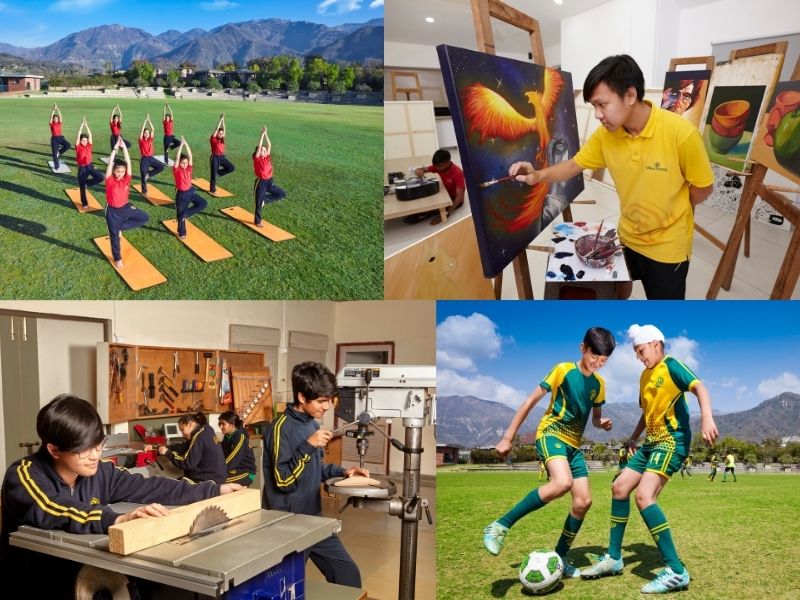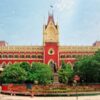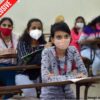
Boarding schools are trending as they are the solution to many of parents’ concerns, providing them space to continue their multiple other chores without having to stress on the innumerable issues raising children bring. Each stage of a child’s development brings its own sets of challenges with parents doing a balancing act between work and home and as a result, they have little time and space for themselves or one other. With the dynamics of education changing, ever so often parents find it extremely challenging or near impossible keeping up with the shifts of paradigms.
“Society is extremely judgmental and it is in the real world where a child has to make decisions, overcome temptations, understand the environment and fit in with the crowd and at times decide that it is better not to fit in.”
Contrary to the notion that academics is the sole facet of education, what children learn outside a classroom is the education that eventually serves them, post-school days! In order for students to have these opportunities to think and act rather than follow the bandwagon, the paradigm needs to provide for constructive engaging experiences. Today, the twenty-first-century learner learns best through the Paradigm of Constructivism. Kasiga School, a boarding school in Dehradun is an ideal place where students are provided with real-life situations, afforded and encourages to demonstrate individualism to act individually as well to live, engage and learn the process of personal growth so that they will be able to transfer this process to all aspects of their lives, thereby affording them the best start to their adulthood collectively. These opportunities and experiences are not always planned which make the outcomes even more beneficial as students have to learn to act wisely to each situation. The School has a campus that is equipped uniquely providing a comprehensive, safe and multi-cultural environment with students hailing from pan India and overseas. Learning goes beyond the confines of the classroom with social interaction between the students and the camaraderie shared serving as the best teacher.
“Children are curious and want to know how things work. It is when they are not engaged mindfully that they tend to pick up unhealthy habits. They need to be taught to question theories and come up with solutions rather than being provided with answers.”
Any institution of repute and relevance creates conditions that catalyse learning of experiential order. Experiences that have been gathered and garnered, be it real-time, real-life, at the level of cognitive, affective or psychomotor, abstract or concrete which definitely has a bearing on knowledge-construct. The experience is nothing but undergoing the process of encountering the events, the know-how, or just being the witness to it… something that happens to an individual that affects feelings produced by conscious or conditioned processes or responses. How a student in a boarding school experiences a variety of aspects of life and activities and interprets events shape the knowledge that will equip him/her productively since the primary source of knowledge is experience. The analytic experiences that the students of Kasiga make about their real, as well as virtual world experiences, make them decide about the environment that engulfs them. This prior or unstructured cognition gained overtly or covertly gets concretized over a period of time when the learners are mentored objectively and rationally. At Kasiga, students are made not to “reinvent the wheel” but instead, to understand how it functions. They are kept engaged by applying their existing knowledge and real-life experiences to help them create and draw their own conclusions on their findings. They work on finding solutions to projects or problems both individually as well as collectively. In this process, they learn to discover that conclusions may differ which is no different to adults or experienced scientists or engineers in the ‘real world’. It is the skill and the humility of sitting together seeking advice and sharing ideas that is eventually the best lesson! Students keep themselves engaged post-academic hours in their dorms or during ‘study hours’ in the evening discussing or working on ideas to hypothesize, test their theories, and ultimately draw conclusions from their findings.

“Students neither are blank slates upon which knowledge is etched nor are they empty vessels waiting to be filled with the knowledge provided by the teacher. They come with already formulated knowledge, ideas and understandings. This previous knowledge is the raw material for the new knowledge ‘they’ will create.”
At Kasiga, teachers are not the fountains of knowledge and the sole provider of it, instead, they serve as the stimuli for encouraging students to think critically, ponder, discuss and then communicate their conclusions, drawing from the knowledge they already possess. The teacher or instructor facilitates the thinking process through a variety of activities or drills which provide a scenario for the student to express themselves. The scenarios are not subjected to academics but also to other facets of education that are co-curricular and assist the learning process or development of certain skills – be it sporting, fine arts, dance and music, debating, trekking or simply pitching a tent. Each student is unique and learns differently and thus, the activity needs to be appropriate to the individual’s needs. It is the creation of differentiated learning activities that boarding schools like Kasiga are instrumental in bringing out the desired results from its students. It is through a network of professional mentorship along with the concentrated efforts of the faculty which ultimately provides for healthier, holistic and more successful life learning experiences.

















Add comment